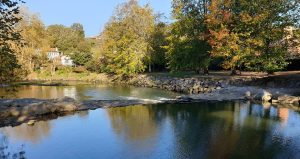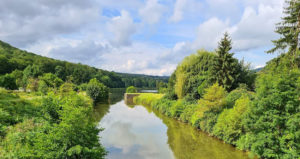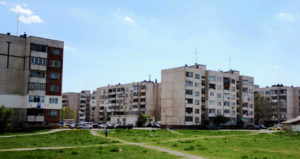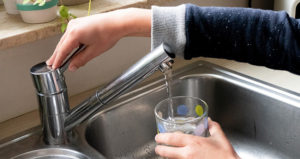EEA-report: Improvement European waters comes to a standstill
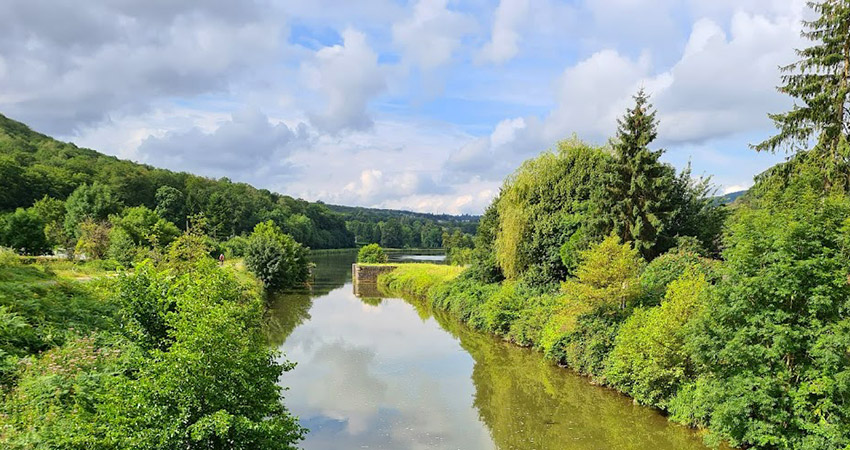
-
Editorial Team
Share article:
Only 40% of Europe’s lakes, rivers, estuaries and coastal waters comply with a minimum ‘good’ or ‘high’ ecological status in 2010-2015. A vast majority of Europe’s water bodies still fails to meet the European Union’s objectives of the Water Framework Directive. This shows a new European Environment Agency ‘state of water’ report published the 3rd of July.
The new report found a similar level of water bodies meeting a ‘good’ or ‘high’ ecological status as the EEA assessment in 2012. “The quality of Europe’s freshwater is gradually improving, but much more needs to be done before all lakes, rivers, coastal waters and groundwater bodies are in good status. Tackling pollution from agriculture, industry and households requires joint efforts from all water users throughout Europe,” said EU Commissioner for Environment, Maritime Affairs and Fisheries Karmenu Vella.
Health check
The EEA report gives an updated health check on over 130.000 surface and groundwater bodies monitored by EU Member States, based on the data collected and reported from more than 160 so-called River Basin Management Plans covering the period 2010 to 2015. According to the European Environment Agency caution is needed when comparing results between Member States. “The results can be significantly affected by the methodology applied by individual Member States”, stated the EEA.
River Basin Management Plans
The new report complements a forthcoming European Commission report, which will assess to what extent the Member States comply with the Water Framework Directive. According to the Water Framework Directive all European waters should eventually meet a ‘good status’. But several countries are asking for a revision of the one-out-all-out principle. Member States need to produce effective River Basin Management Plans (RBMPs) as well as programmes and measures to improve water quality.
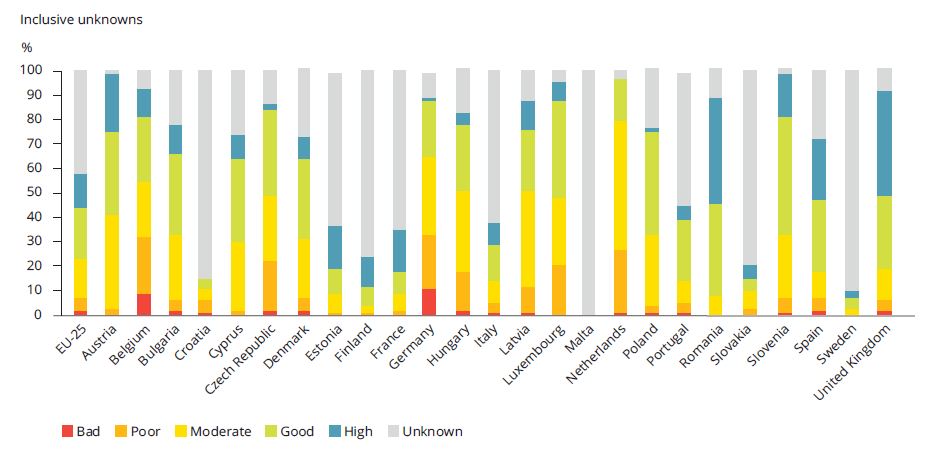
The status of many water bodies in the different Member States remains unknown. Source: EEA-report.
Groundwater quality
Compared to surface waters, groundwater sources generally have the best status. Good chemical status has been achieved for 74% of the groundwater area, while 89 % of the area achieved good quantitative status. The reasons for not meeting the minimum targets were mostly due to contamination of water sites by nitrates from agricultural run-off, salt intrusion, and the seeping of hazardous chemicals from contaminated sites.
Central Europe problematic
Northern Scandinavia, Scotland, Estonia, Slovakia, Romania, and several river basin districts in the Mediterranean region show a high proportion of surface water bodies in high or good ecological status. In contrast, many of the central European river basin districts, with higher population density and more intensive agriculture, show the highest proportion of water bodies failing to achieve good ecological status.
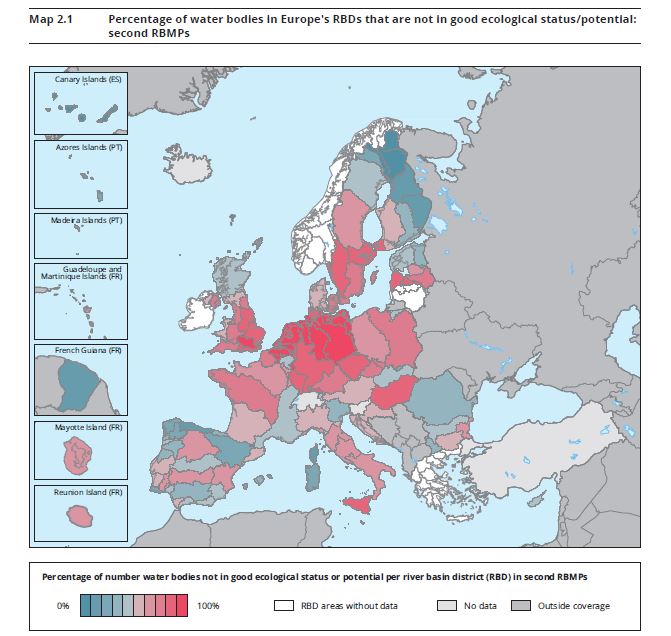
Many of the Central European river basin districts fail to achieve good ecological status. Source: Report EEA.
Mercury pollution
Only 38% of monitored lakes, rivers and other surface water bodies are in good chemical status — with concentrations of pollutants not exceeding environmental quality EU-wide standards. In most Member States, a few substances account for poor chemical status, the most common being mercury. Once widely used in thermometers, batteries, and paints, mercury continues to be found in water samples, followed by cadmium, which is used in phosphate fertilisers and in metal production.
Monitoring
EU Member States are currently in their second monitoring and reporting cycle (2015-2021) under the EU Water Framework Directive. This round includes 89.000 rivers, 18.000 lakes, 13.000 groundwater sites, and 3.600 coastal and estuary waters. Reporting from Greece, Ireland, Lithuania and from parts of Spain could not be included in the report.



